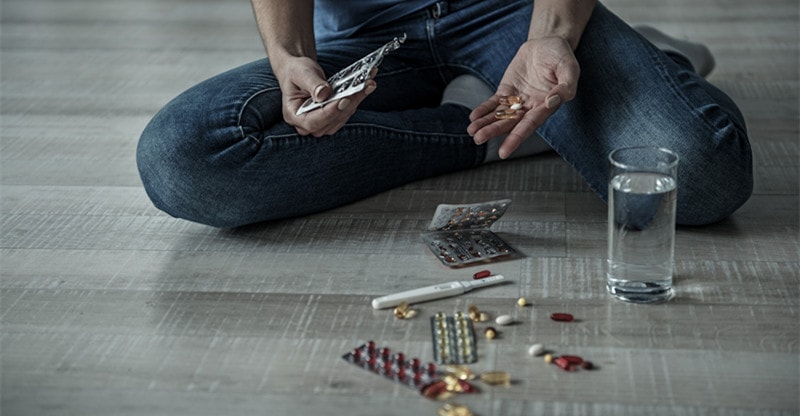Hope and Healing: How to Heal Our National Opioid Addiction
The news today is dire. An estimated 130 people die of an opioid overdose every day in the United States. Studies suggest that up to 20% of all death in the US can be attributed to drugs, alcohol, or tobacco.
Addiction is wreaking havoc on lives, families, and communities, and opioid dependency is at present the sharpest fang of the beast we must fight. Though our foe is formidable, our hope, faith, and promise are even stronger. We have many potent weapons in our arsenal today. We simply must find the strength, the understanding, and the will to use them.
The Power of Prescribers
Opioid addiction often begins innocently enough. The patient has an operation or experiences an injury, and the well-meaning doctor prescribes something for the pain. All too often, though, opioids are prescribed when they are not medically necessary when alternatives for managing pain effectively are readily available.
Even when opioids turn out to be the only pain management option, few prescribers know how to use them correctly. Dosages are often higher than is needed and scripts typically cover anywhere from a 10 to a 30 day supply, meaning patients will have access to the drug long after the pain the drug was prescribed to control has subsided.
Worse, prescribers often turn to opioids as a first-line pain treatment, without considering the patient’s risk of addiction, counseling the patient on strategies to prevent addiction, or developing a plan to wean the patient off the medication.
The Power of Prevention
Because addiction often follows a legitimate illness or injury, one of the best ways to combat opioid dependency is to avoid illness and injury in the first place. To be sure, accidents happen and not every sickness can be prevented. Nevertheless, there are still many things you can do to decrease your health risks and also to minimize the severity of illnesses and injuries when they do occur.
Nurses can be invaluable resources in helping you to identify your particular risk factors. They can provide education and access to resources to support you and your family in practicing sound preventative health, including helping you to optimize your nutrition and exercise, and ensuring you remain current with your immunizations, checkups, and wellness screenings.
The Power of the Plant
In addition to practicing good preventative health and responsible pain management, it is also important to be educated on the many plant-based and holistic options proven to help control both chronic and acute pain. CBD-based products are available in a variety of forms, from edibles to oils to tinctures. Not only has CBD been cited for its natural pain-reducing qualities, but it has also been shown to reduce inflammation and decrease stress and anxiety, further enhancing its pain-relieving effects.
Best of all, unlike THC, CBD does not produce the psychotropic effects or give you the “high” associated with marijuana, and is legal in all states, provided that the THC content is less than 0.3%, as most therapeutic CBD products are.
When Addiction Strikes
Unfortunately, no matter how vigilant you may be, addiction can still strike you or those you love. If it does, quick and informed action is key. Kicking an opioid addiction is not a matter of will power. It’s not just about white-knuckling your way through the cravings. It’s about persistence and proper care and treatment for opioid addiction.
Exposure to opioids literally produces changes in the structure and the function of the brain, changes that create cravings so intense they may be impossible to resist without help. In fact, asking an addict to kick opioids without treatment is like asking a heart attack victim to walk it off—and the results can be just as deadly.
Studies increasingly show that medical intervention is not just helpful, but necessary, especially in treating the first stages of detox. Withdrawal is not only painful—it can be life-threatening. Medications initially developed to treat psychiatric conditions, such as major depressive disorder, are increasingly being found to mitigate the profound neurological effects of withdrawal. Likewise, prescription medications such as suboxone have been shown to help prevent relapse in the critical first six months of recovery.
The Takeaway
Opioid addiction is a hydra of illness, and if we are to heal the nation of this devastating epidemic, then we must battle the beast on many fronts. This means that we have to begin by ensuring that opioids are prescribed responsibly, only when and for no longer than absolutely necessary. In addition, good preventative health practices can help reduce the incidences of injury and illness that opioids are often prescribed to treat.
There are also a variety of holistic alternatives, including CBD-based therapies, for controlling both chronic and acute pain. Finally, when addiction occurs, as it inevitably will, the victim must not be left to fight alone for their lives and health. Medical intervention, both in the early stages of withdrawal and throughout the first months of recovery, must be provided to prevent the relapses that have taken far too many lives.



